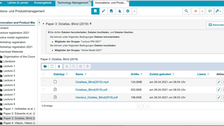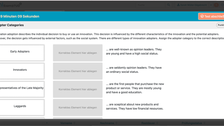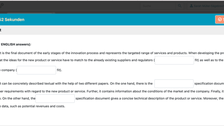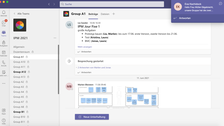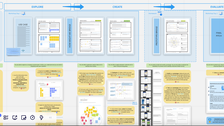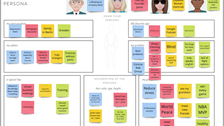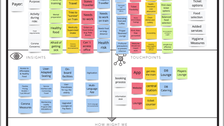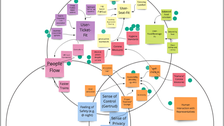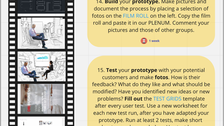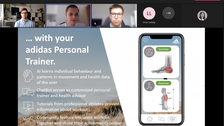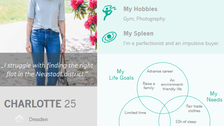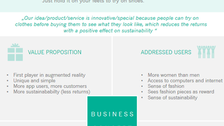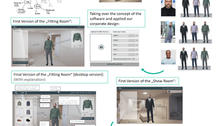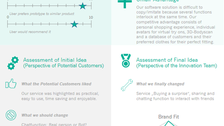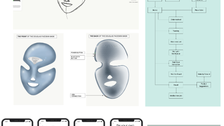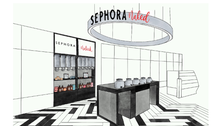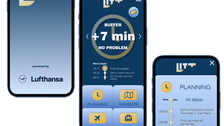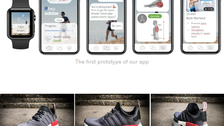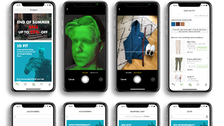Innovation and product management (IPM): Sarah Müller-Sägebrecht, M. Sc. (#SM1)
Format
- Asynchronous lecture every week for knowledge transfer; provision of PDF and MP4 files via OPAL course
- Synchronous 2-day online workshop, in which the entire innovation process was tested on well-known companies; use of Miro and MS Teams
- Individual, synchronous consultations before, during and after the seminar via MS Teams
Keywords
Flipped classroom, business and economics, online collaboration, digital whiteboard, innovation, mock-ups, diversity
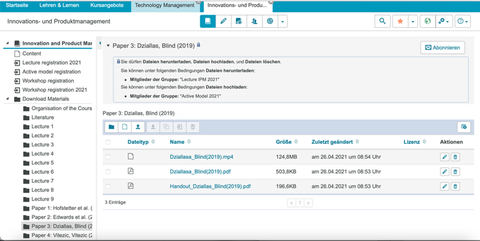
© Sarah Müller-Sägebrecht
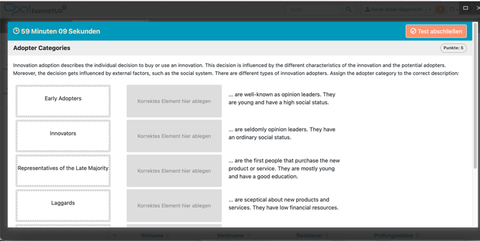
© Sarah Müller-Sägebrecht
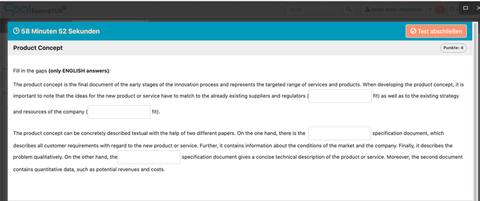
© Sarah Müller-Sägebrecht
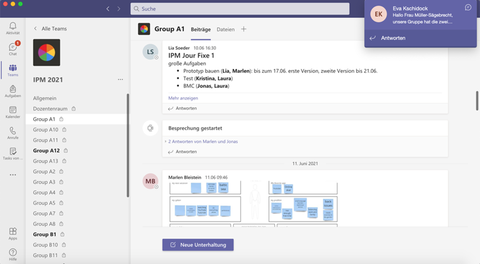
© Sarah Müller-Sägebrecht
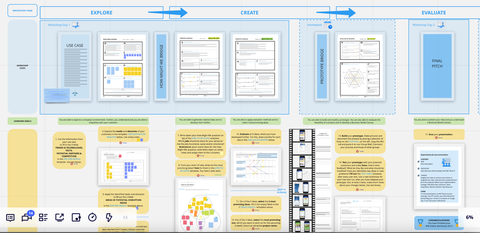
© Sarah Müller-Sägebrecht
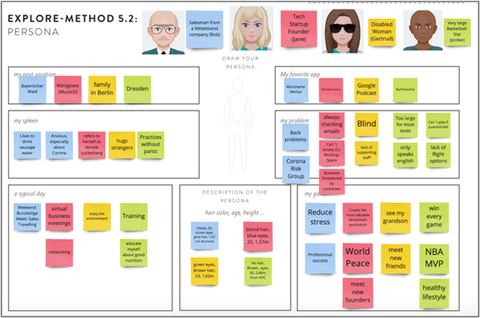
© Sarah Müller-Sägebrecht
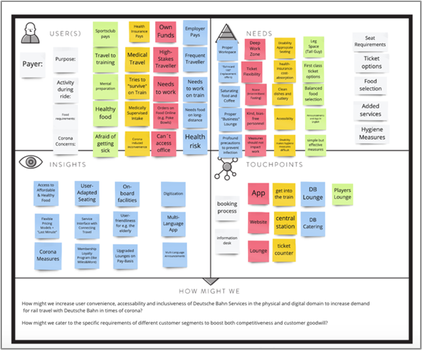
© Sarah Müller-Sägebrecht
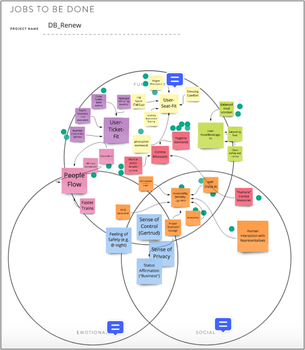
© Sarah Müller-Sägebrecht
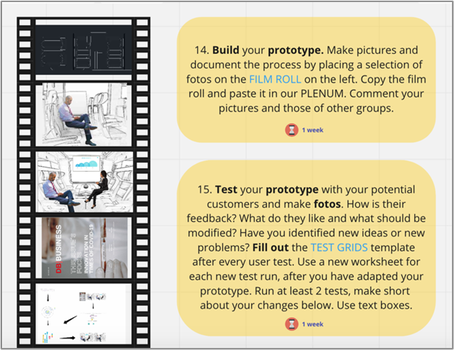
© Sarah Müller-Sägebrecht
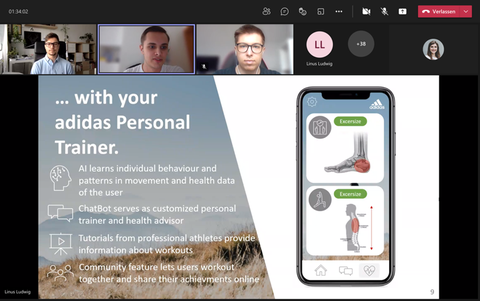
© Sarah Müller-Sägebrecht
Description
As we did in the summer semester of 2020, we made our lecture content available online in an asynchronous format. For this purpose, the narrated teaching slides for each lecture chapter were uploaded to OPAL on a weekly basis. In order to answer students’ questions about the content effectively, a digital “Question Channel” for teaching questions was also set up in Microsoft Teams. In addition, we gave students the opportunity – depending on their flexibility and initiative – to participate more actively in the lecture. To this end, students could voluntarily hold a topic-related, academic presentation and thus collect points for the online final exam in advance. The students recorded their presentations and made them available to the other students as PDF and MP4 files in OPAL. The exam was held digitally with OPAL exam2 during the regular examination period.
In addition, students participated in the two-day online workshop. In the summer semester of 2020, we had already converted this workshop ad hoc into a digital model with MS Teams and the virtual collaboration tool Miro, to which the students responded very positively. In the workshop, students worked in groups of 5 on the entire innovation process of an idea they had developed themselves. On the first day of the workshop, students used digital creative methods (e.g. idea tower, persona method) to develop their own ideas and then worked together to develop the best idea on their group’s digital Miro board.
Between the first and second workshop days, the students had 3 weeks in which they independently developed a real or digital prototype and a specific business model using established innovation methods (e.g. Business Model Canvas). Suitable prototypes also represented app demo versions (mock-ups), which most groups used to illustrate their ideas. During these 3 weeks, the Chair was always available on MS teams to answer questions via direct message or phone call. On the second workshop day, the students presented their prototype as well as their business model – either synchronously in the concluding video conference or asynchronously with an image clip.
The seminar culminated in the creation of a 170-page course booklet, in which the ideas of all 20 teams were presented:
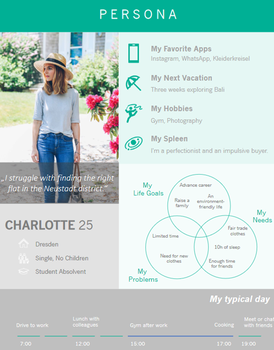
© Sarah Müller-Sägebrecht
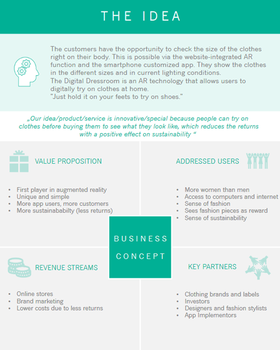
© Sarah Müller-Sägebrecht
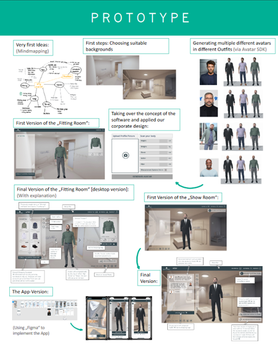
© Sarah Müller-Sägebrecht
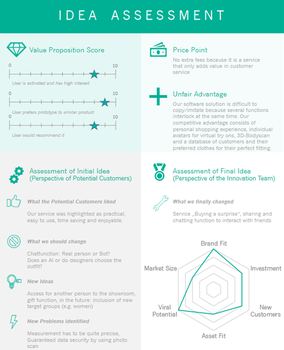
© Sarah Müller-Sägebrecht
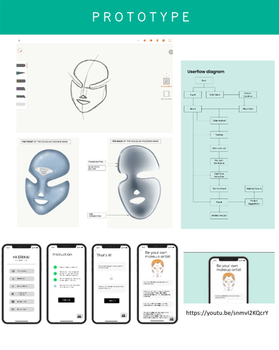
© Sarah Müller-Sägebrecht
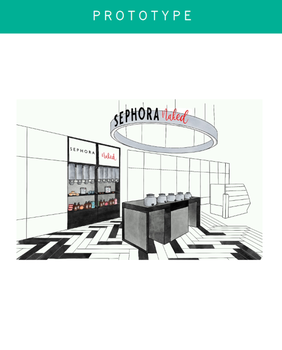
© Sarah Müller-Sägebrecht
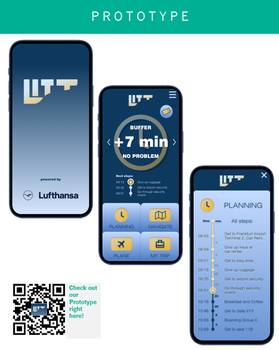
© Sarah Müller-Sägebrecht
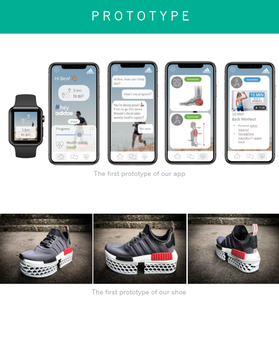
© Sarah Müller-Sägebrecht
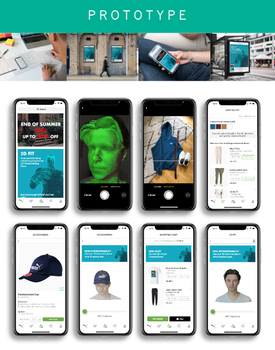
© Sarah Müller-Sägebrecht
Sample outputs from the workshop can be viewed here:
- Douglas Mask pitch video: https://cloudstore.zih.tu-dresden.de/index.php/apps/files/?dir=/Lehre/Bewerbung%20E-Learning%20Schmuckstück%202021/Workshop%20Output%20Examples&openfile=505691086
- QR code to the prototype of the newly developed Lufthansa app: https://cloudstore.zih.tu-dresden.de/index.php/apps/files/?dir=/Lehre/Bewerbung%20E-Learning%20Schmuckstück%202021/Workshop%20Output%20Examples&openfile=505691083
- YouTube link to Ryanair pitch video https://www.youtube.com/watch?v=OLwhAltMb6A
Contact
Sarah Müller-Sägebrecht, M. Sc.
Prof. Dr. Michael Schefczyk
Voting ID
#SM1

